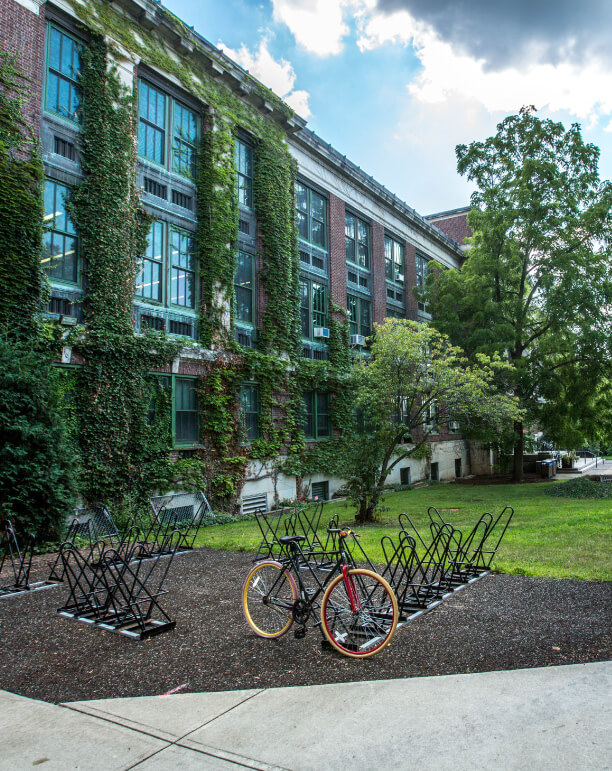Artificial Intelligence (AI) in the Age of Transformation: Opportunities and Challenges
Prishtina: 13.05.2025 - 13.05.2025
Type: International Scientific Conference
Organizer:
AAB College, Pristina, Kosovo
in Partnership with:
University of New York Tirana
The Department of Journalism and Communication, University of Tirana
South East European University
The widespread adoption of digital technologies in everyday life marks a new chapter in the history of humanity (Floridi, 2023). As the most advanced technological development, Artificial Intelligence (AI) has permeated almost every sector, simultaneously facilitating and complicating human interactions within society. This includes changes in how we live and communicate (Yang et al., 2024), consume (Rust, 2020), and how organizations compete and create value (Güngör, 2020).
The integration of AI in media communication represents a revolutionary shift, enabling the automated production of vast amounts of information daily across multiple locations (Barrolleta & Sandoval-Martín, 2024). Businesses have also introduced non-human agents, such as AI, in consumer communications, raising concerns among academics studying business and economics (Davenport et al., 2020; Yang et al., 2024). Although laws and standards have progressed, the exact ways in which AI threatens human rights across various spheres of life remain unclear (Lane, 2023).
In politics and marketing, the launch of generative artificial intelligence (GAI) chatbots, coupled with the growing use of AI in strategic communications, has sparked ethical debates among practitioners and researchers. This development has also prompted actions by industry associations (Germinder & Capizzo, 2024) and enabled politics, populists, and demagogues who engage in politics even more to play with fox strategies (Fuller, 2018; Saliu, 2024).
Digital technologies also present new challenges, as they are often designed to be misleading, driven by commercial motives, or influenced by other inaccuracies (Swire-Thompson & Lazer, 2020). People are increasingly turning to ChatGPT as an advisor for health-related concerns, even though the information it provides has not been rigorously tested or proven to be reliable (Nutbeam, 2023).
AI has also revolutionized education by making machine-based thinking a practical reality (Looi, 2024). While it is not yet clear whether kindergarten teachers are empowered or hindered by children’s use of ChatGPT (Su & Yang, 2023), it is evident that ChatGPT can often serve as an excellent math tutor (Taani & Alabidi, 2024). The challenges for educators are compounded by the difficulty in determining whether a student has completed homework independently or with the assistance of AI (Atlas, 2023; Shklarski & Ray, 2024). Thus, preparing for the labor market necessitates the integration of AI literacy and ethical decision-making skills, which balance technical expertise with critical thinking (Waring, 2024) in a rapidly evolving world where various professions, including those in higher education, face growing risks (Rudolph et al., 2023).
In addition to the advantages and disadvantages, like any revolution, the Fourth Industrial Revolution (Floridi, 2014) raises concerns about the future of certain professions. Train and subway operators, plumbers, doctors, and others worry about the potential loss of their jobs (Harari, 2016).
Nonetheless, the widespread use of technology has simultaneously facilitated the integration of society, culture, and technological advancements (Fuchs, 2009). AI, as the pinnacle of technological development, can be used ethically or unethically. However, we must strive for a harmonious coexistence between the natural environment and the digital technologies with which we interact, in order to create a better society and a healthier biosphere (Floridi, 2023).
Therefore, the aim of this conference is to serve as an international scientific forum, bringing together researchers and professionals from various industries to address the current priorities and challenges of using AI in everyday life through an interdisciplinary approach.
In this respect, we invite those interested to submit an abstract addressing the above issues and the following topics, but not limited to them:
- The Role of AI in Everyday Life
- Artificial Intelligence and the Media
- Business and AI
- Challenges and Misuse of Technologies
- AI and Ethics
- Privacy and Technology
- Technology, AI, and Human Rights
- AI in Healthcare
- Technology and AI: Challenges and the Future
- Education in the Era of AI and ChatGPT
- AI and Professional Training
- AI Competition in Professions
- AI and Security Challenges
- AI and Crime Prevention
- Technology, AI and mental health
- AI and Administration
- AI and Sport
- AI and Linguistics
- AI and Culture
Keynote Speaker:
Director of Research & Learning Innovation, Kaplan Higher Education Academy, Singapore

Organizing Committee
- Prof. Asoc. Dr. Hasan Saliu, AAB College
- Prof. Ass. Dr. Venera Llunji, AAB College
- Prof. Asoc. Dr. Ilir Kalemaj, University of New York Tirana
- Prof. Ass. Dr. Mimoza Kamberi, AAB College
- Deans of AAB College
Scientific committee
- Prof. Ass. Dr. Fatime Arenliu, Qosaj, AAB College
- Prof. Asoc. Dr. Besime Ziberi, AAB College
- Prof. Asoc. Dr. Ilir Kalemaj, University of New York Tirana
- Prof. Assoc. Dr. Iris Luarasi, University of Tirana
- Dr. Rrapo Zguri, University of Tirana
- Prof. Ass. Dr. Xhavit Islami, AAB College
- Prof. Asst. Dr. Jusuf Qarkaxhija, AAB College
- Prof. Dr. Azir Aliu, SEEU, Tetovo
- Prof. Dr. Artan Luma, SEEU, Tetovo
- Prof. Asoc. Dr. Hasan Saliu, AAB College
Important Dates
- Abstract Submission: By March 30
- Notification of Abstract Acceptance: April 10
- Conference Date: May 13, 2025
- Participation: Free of Charge
- Method of Presentation: In-Person and Online (via Google Meet)
- Book of Abstracts and Proceedings Book with ISBN
- Opportunity to Publish in the Thesis Journal (following peer review).
- The conference language will be Albanian and English.
To apply for participation in the conference, please send an abstract (150-200 words) to the following email: [email protected]















